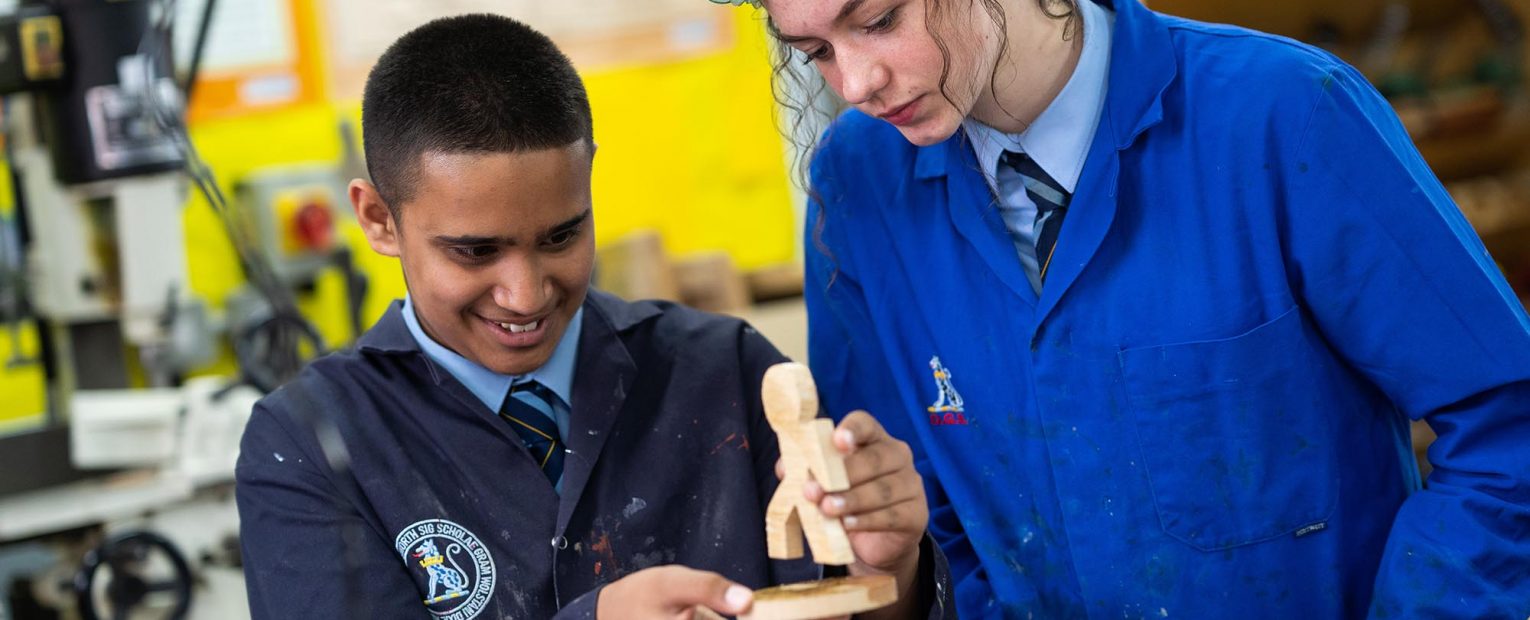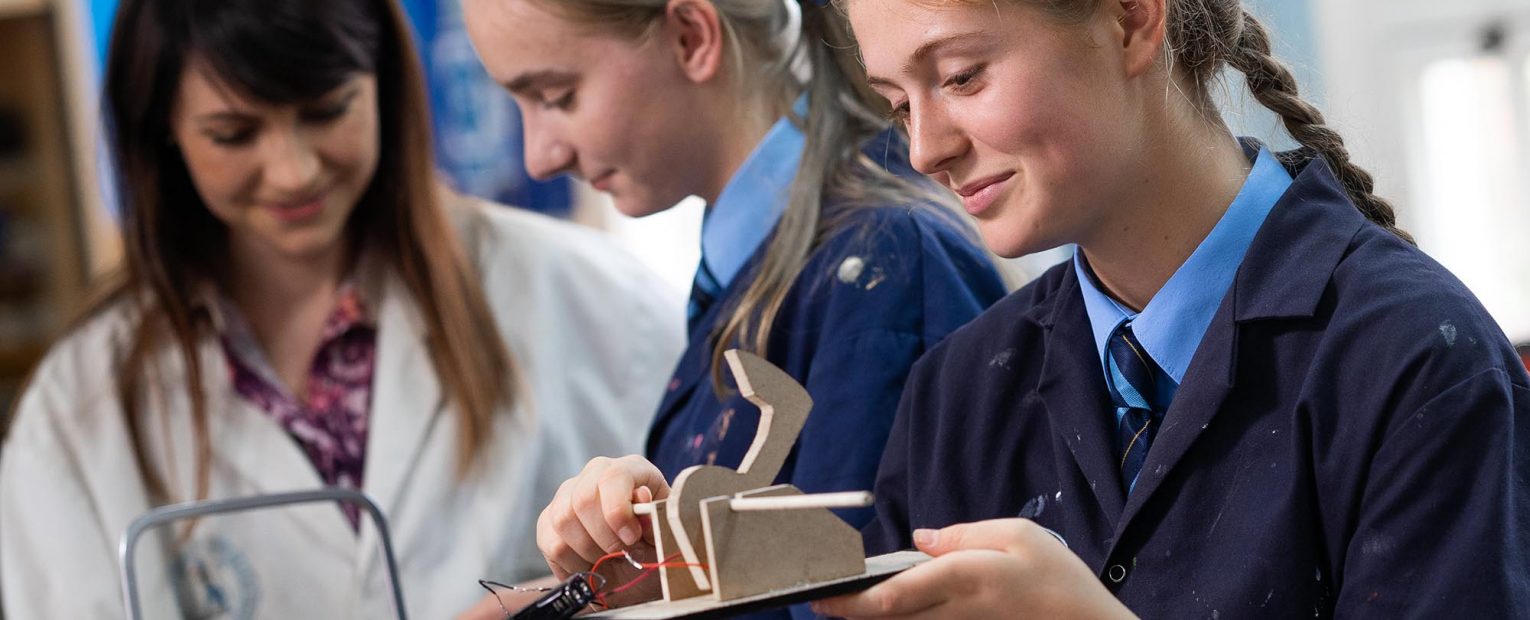Mental Health at the Dixie Grammar School – Senior School
Staff at the Dixie recognise that young people and adults alike face significant challenges to their mental health. The pressures resulting from examinations, puberty and the changes associated with secondary education are substantial and are further compounded by the presence of social media. Young people today face particular challenges online – to conform to behaviours, to seek and receive approval for image, lifestyle, choices etc. The national figures concerning mental health in young people are alarming and this understandably is of great concern to parents.
Along with concerns about the rise in mental health difficulties among young people are very grave concerns about the difficulties faced by youngsters and the adults that care for them in accessing support services. As well as this, there is rightly a focus among professionals about how to prevent mental health difficulties.
We are not believers in one-off programmes, catch-all cures or knee-jerk responses but this does not mean that we do not take the school’s role in preventing and responding to mental health concerns very seriously.
Prevention
There is lots of research that suggests that we can prepare our young people for the challenges of life by providing a balanced approach to life for them from their earliest steps. Experts tell us that we build resilience in children by allowing them to fail sometimes, by helping them resolve their own difficulties and by standing back on occasions whilst they work out their friendships, relationships with peers and elders. Of course, there are times when as parents it is exactly right that we step in to help our children and certainly knowing which situation is which is one of the real challenges of parenting. We recognise that mental health challenges exist in any and all circumstances – for the student facing a shocking life event such as a parental bereavement, the child with low self-esteem, a youngster experiencing identity challenges or the high achiever putting undo pressure upon themselves.
Here at the Dixie the factors that contribute to building resilience include:
Generous PE allocation compulsory until Year 11 – exercise is vital to good mental health.
DOSE for Year 6 – team-building, outdoors education, problem solving activities.
Emphasis on trips and outdoor education – managing the challenges of room allocations on a trip, sorting Duke of Edinburgh groups, being responsible for one’s own passports, staying with a family abroad, these are all mechanisms by which young people can learn and importantly test the skills needed for adult life.
Strict rules in school and on school trips regarding the use of personal phones.
PSHCE embedded in the curriculum Years 6 – 11. These lessons provide an opportunity to explore topics not covered elsewhere on the curriculum, including drugs and relationships education as well as to respond to difficulties within year groups as they arise.
Balanced approach to exams – all year groups complete end of year exams which is good preparation for external exams but for students early on in their school careers there is very little fuss or stress associated with these exams by staff. Low key assessment of the teaching is the message. Increased formality associated with exams in the senior part of the school is appropriate and helps to prepare students for the demands of GCSEs and A Levels. Study Leave for Year 10 students and Year 11 during mocks also helps to prepare them for the ‘real thing’.
Recognition of success in as broad terms as possible – every week we celebrate the successes of our students on the playing fields, in the classroom, in clubs and activities both within and beyond school.
Balancing competition and participation – competition is a part of life and it would be wrong not to prepare our students for this. We do engage in competitive sport, award prizes for academic, sporting and wider excellence but we are conscious not to engrain attitudes towards competition too early. Lots of sports fixtures are all inclusive and students are recognised for their achievements as widely as possible.
Individual speakers / presentations – we take opportunities when they arise to invite individual speakers into school to address particular year groups about relevant issues. Recent presentations have been on drugs and alcohol to Years 8 & 9, understanding teenage mental health to parents with sessions on Kayleigh’s Story & Breck’s Last Game planned for academic year 2019-20.
Support from specialised programmes – Dr Julie Hurst leads three well-being sessions in Year 6 building on the work she facilitates in the Junior School and supporting students through the change from the Junior to Senior School.
Response
As you would expect all staff at the Dixie Grammar School are trained to be alert to signs of distress in young people and to respond appropriately to a student who shares concerns about their well-being. This will usually mean referring the student to one of the two Designated Safeguarding Leads in the school – Mrs H Joanne Banton (Director of Student Care) or Ms Catrina Young (Deputy Head) Both have had additional training to enable us to carry out these roles in school. As well as training we have access to a wide range of advice & support lines to help parents get the right support for their sons and daughters. As we are all too aware, funding for such services is in crisis and it can be difficult to access appropriate help but together we work to support your children as much as we are able.
In addition to this Mrs Banton will, this year be attending a two day training course run by St John’s Ambulance to further equip her to support young people with mental health difficulties and Ms Young hopes to attend training offered by a clinical psychologist.
The support we offer varies from individual to individual but can include, provision of a peer mentor, identifying a staff member to act as a mentor, offering a chance to off-load concerns be that as a one off or an on-going exercise. We can make alterations to practical arrangements in school where these would be helpful and are possible and as discussed above can liaise with families and external agencies to help ensure young people get the support they require.
Catrina Young, Deputy Head



